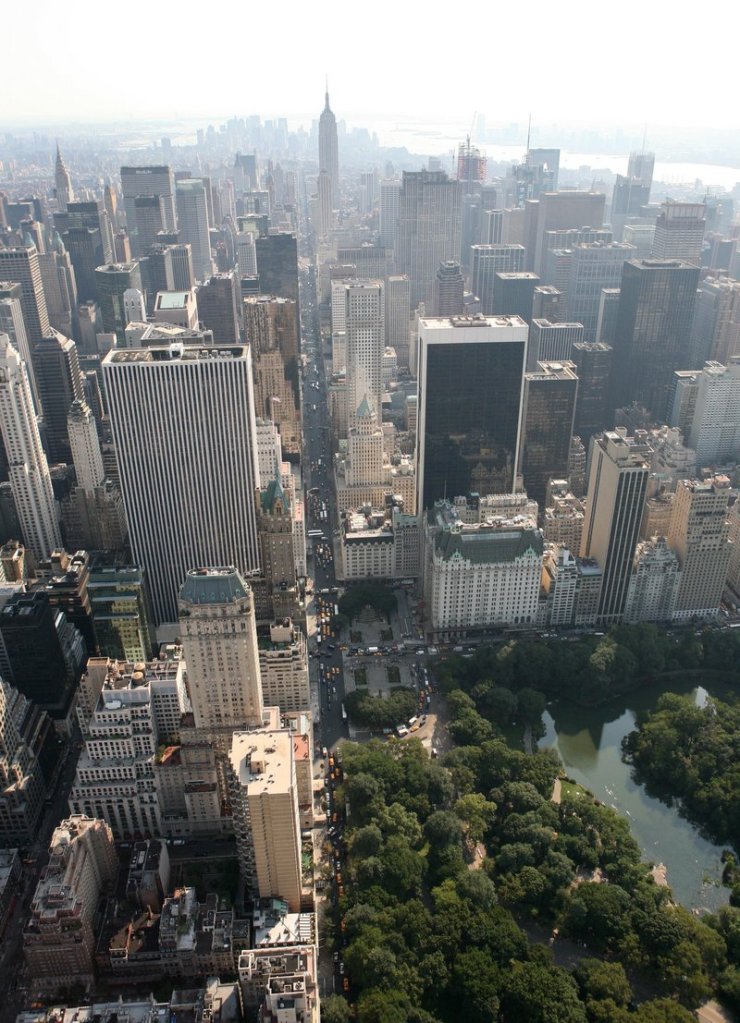WASHINGTON – New York is where the 1 percent live — and they have the tax returns to prove it. Nine of the 10 most heavily taxed neighborhoods in the United States are in the city’s metropolitan area, Internal Revenue Service data show.
The nine neighborhoods, which range from Manhattan to Fairfield County, Conn., accounted for 0.2 percent of all federal income-tax filers in 2008, the latest year for which data are available, according to IRS statistics compiled by Bloomberg. They paid 1.6 percent of all individual income taxes, eight times their proportionate share of the filing population.
The $16.5 billion paid in the nine ZIP codes counters arguments by anti-Wall Street protesters who claim to represent “99 percent” of Americans and say the rich should be taxed more, said Mitchell Moss, an urban policy professor at New York University’s Wagner School.
“We’re subsidizing the slackers in the rest of the country,” Moss said.
The only ZIP code outside the New York area to make the top 10 was a Houston suburb that accounted for $1.5 billion in federal individual income taxes.
Nationally, the IRS showed, 137.7 million U.S. households paid $987.4 billion in federal taxes in 2008. The nine New York-area ZIP codes reported $70.1 billion, or 0.9 percent, of the nation’s total adjusted gross income of $7.98 trillion.
Individual income taxes are the federal government’s largest source of tax revenue, accounting for 45 cents of every $1 raised. Payroll taxes, which are more regressive, make up 36 cents; corporate taxes another 12 cents; and other taxes account for 7 cents of every tax dollar raised by the government.
There’s no doubt that income inequality is growing. The Congressional Budget Office reported last month that after-tax income for the richest 1 percent of U.S. households grew 275 percent from 1979 to 2007. For the lowest 20 percent, after-tax income grew 18 percent over the same period. And Occupy Wall Street protesters are pressing for more taxes on the highest earners, or the “1 percent,” as one way to curb the growing income disparity.
The share of taxes paid in the New York neighborhoods is “a distortion of the fact that as a percentage, wealthy people pay far less as a portion of their earnings,” Karanja Gacuca, an Occupy Wall Street spokesman who identifies himself as a former Deutsche Bank analyst, said in an email.
Copy the Story Link
Send questions/comments to the editors.



Success. Please wait for the page to reload. If the page does not reload within 5 seconds, please refresh the page.
Enter your email and password to access comments.
Hi, to comment on stories you must . This profile is in addition to your subscription and website login.
Already have a commenting profile? .
Invalid username/password.
Please check your email to confirm and complete your registration.
Only subscribers are eligible to post comments. Please subscribe or login first for digital access. Here’s why.
Use the form below to reset your password. When you've submitted your account email, we will send an email with a reset code.